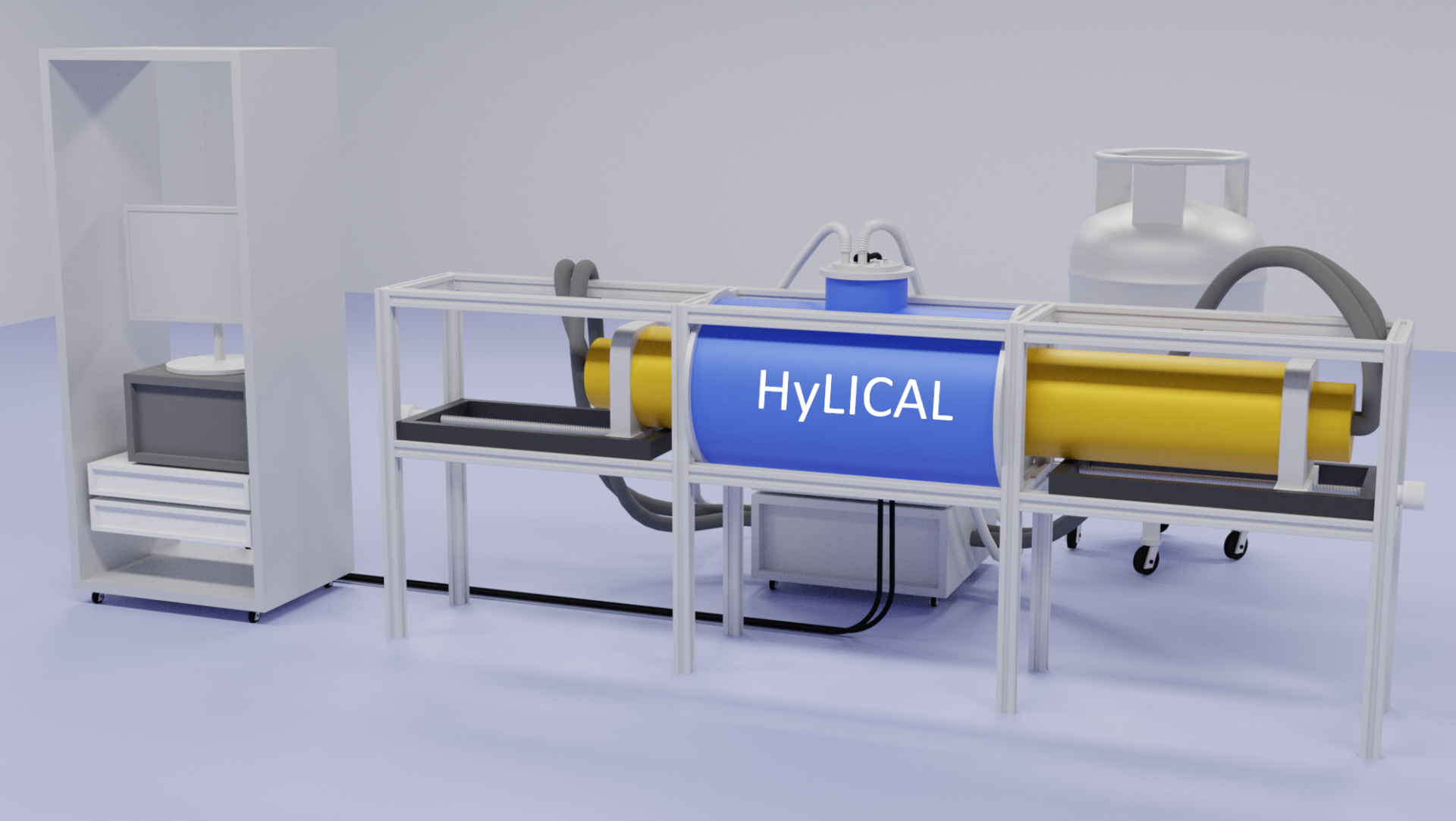HyLICAL “Development and validation of a new magnetocaloric high-performance hydrogen liquefier prototype”
HORIZON-JTI-CLEANH2-2022-02-03; grant agreement number: 101101461.
HyLICAL is a Research and Innovation Action that is coordinated by IFE and constitutes 14 partners from 9 different European countries. This is the first hydrogen liquefaction prototype to be funded under the Clean Hydrogen Partnership.
HyLICAL will contribute to reaching an energy demand of 8 kWh/kg and a liquefaction cost of <1.5 €/kg by validating an innovative and energy-efficient liquefier prototype for the cryogenic region (< 120 K) based on magnetic refrigeration. The implementation of the magnetocaloric hydrogen liquefaction (MCHL) technology developed in HyLICAL offers the following perspectives:
- Up to 50% reduction in energy consumption during liquefaction compared to conventional technology.
- Significant reduction in CAPEX and OPEX for liquefaction.
- Possibility of liquefying hydrogen in far smaller volumes than with current technology.
- Reduced boiling of hydrogen during storage.
- Eliminate the use of compressors (reduced maintenance) and reduced noise.
- Reduced use of critical raw materials.
- Safer storage and transport of liquid hydrogen.
- More volume-efficient storage of liquid hydrogen.
- More sustainable transport and storage of liquid hydrogen.
- Increase the opportunities to utilize trapped power and power from RES.
- Increase the opportunity for sustainable local communities.
- Increased knowledge of magnetocaloric materials.
- Increase the profitability of Norwegian hydrogen exports.
- More energy-efficient liquefaction and the possibility of having small-scale liquefaction plants will help to accelerate decarbonization and the development of a sustainable society.
HyLICAL will drive the Technology Relevance Level (TRL) for MCHL technology from initially TRL 3 to TRL 5 at project end. This will be achieved by significantly increasing the liquefaction capacity of the demonstrator from the current SoA (<1 kg/day) to close to 100 kg/day. We will demonstrate that there are no intrinsic limitations that prevent the MCHL technology from being scaled up to suit flowrates above 100 TPD, thus satisfying the need for large-scale production capacities needed in the heavy-duty mobility sector and elsewhere.
The intended technology development will result in a substantial reduction in energy consumption, capital investment, and operating cost for hydrogen liquefaction, in addition to a safer and more sustainable storage of liquid hydrogen. The project will contribute to the green transition of industry and increase the potential to optimize utilization of renewable energy sources (RES) in off-grid configurations. The project is supported by the Clean Hydrogen Partnership and its members.
Links: https://cordis.europa.eu/project/id/101101461 and https://www.hylical.eu/ (Project website)

